The Weaver Of Lost Threads
The City of Amnesty was a monument to flawless surfaces. Every paving stone of the Exclusion Square was buffed to a wet sheen, and the limestone façades of the surrounding magistrates’ offices gleamed like freshly scrubbed teeth. Nothing here was permitted to be scuffed, stained, or out of place. This perfect, brittle order revolved around one object: the Cursed Mirror. It was a towering slab of obsidian, set deep into the central wall, reflecting not the square itself, but a perpetual, liquid darkness that seemed to swallow the afternoon light.
A hush, heavier than a shroud, had settled over the small crowd. They were not there out of curiosity, but obligation; a civic duty to witness the affirmation of the Law of Inherent Flaw.
Led by two impassive guards, Mial the baker shuffled forward. Mial was a gentle man whose hands, usually dusted with flour, now trembled like winter branches. For forty years, those hands had kneaded life into the city’s bread, but none of that context mattered now. All that mattered was the reflection.
The city magistrate, a thin man in a starched collar, read the decree with the cold, measured cadence of a clock ticking towards midnight. “Mial of the Third Quarter, you are here to be weighed. The Mirror sees the self that remains when all contributing factors are stripped away. It sees the Eternal Stain.”
Mial did not look at the magistrate; his gaze was fixed on the ground where the clean lines of the paving met. He was the singular bad harvest being lifted from the field, and the city was about to declare him rotten to the core.
A bell tolled once, a deep, resonating shudder that seemed to shake the perfect limestone. Mial was forced to raise his head.
The Mirror demanded a full, unflinching gaze. The second Mial’s eyes met the obsidian surface, the darkness within it did not reflect him; it formed a thing in his shape. The baker’s twisted double grinned—a feral, hateful rictus that promised torment. It was a caricature of malice, embodying the Absolute Corruption that permitted no possibility of complexity or circumstance.
“Scathed Shadow affirmed,” the magistrate stated, a note of satisfaction in his voice. “Exile is immediate. The character is Permanently Set.”
Mial let out a small, wounded sound, like a gasp caught beneath the water. The guards seized his arms to drag him towards the barred exit leading to the wasteland, enforcing the Doctrine of Final Judgement—Mial was a moral write-off, unfit for the community.
In the cool, greasy shadows of a nearby alley, a figure watched the unfolding judgement. This was Solen. Their presence was not officially permitted, but they were largely ignored, seen as merely another piece of the urban grime that the city preferred to pretend did not exist.
Solen’s shawl was their most notable feature: a garment woven from hundreds of fine, matte black threads. The citizens saw the threads and instinctively shrank back, reading them as a sign of latent darkness—a previous, failed reflection of their own. They were a visible mark of The Condemned Mark.
Solen did not flinch as Mial was dragged past. Instead, with a quiet, nearly invisible movement, they severed a single black thread from the hem of their shawl. They held the shimmering fibre between their thumb and forefinger, feeling the ghost of Mial’s profound, undeserved pain settle into the weave.
Solen’s eyes lifted from the thread to the Mirror, now settling back into its passive, dark pool.
“They see the face of the monster,” Solen thought, the observation a bitter, silent accusation against the crowd’s satisfied complacency. “But they ignore the stone that makes the square.”
It was not Mial’s soul that was rotten, Solen knew, but the entire, self-justifying system of Amnesty—the cold structure that chose to condemn the victim rather than examine the environment. The black thread closed around the baker’s anguish, becoming one more lost record waiting for a weaver to interpret its true, nuanced story.
Solen's workshop was less a room and more a meticulous catastrophe, tucked into the damp stone beneath the city's ancient aqueducts. Dust lay thick on everything but the tapestries themselves, which hung like silent, shimmering flags from ceiling beams scarred by centuries of rising moisture. Each was a growing chronicle, woven entirely from the black threads Solen had cut from their shawl—threads that absorbed the psychic residue of those the city had cast out. Here, the sorrow of exiles was not forgotten, but ritualised and preserved.
Solen was crouched over the largest tapestry, the archive of General Vaer, the infamous "war criminal" whose exile was meant to be the final word on Absolute Corruption. The city’s record was simple: Vaer was a monster driven by pure malice. But Solen saw the warp and weft of the system, not the simple, destructive outcome.
The black fabric was dense, weighted by Vaer's terrible deeds. Solen’s needle, however, ignored the prominent loops of destruction, tracing the faint, almost invisible silver lines of nuance. The city had condemned the general for abandoning his post during the Great Withdrawal. Solen found a knot, a dense, hard point in the thread where the desert wind and the smell of gunpowder were still palpable. Deep within this knot, they felt a tiny, non-magnetic object: a broken compass.
Solen held the compass piece up to the sputtering oil lamp. It was utterly useless for navigation, yet its needle was locked, not on a cardinal direction, but on a specific memory: Vaer, collapsing in the heat, using the last of his brackish water not for himself, but to soothe a dying cavalry horse he was abandoning. A negligible act of kindness set against a massacre, but an act nonetheless.
“The city sees the Eternal Stain,” Solen murmured, their voice scratchy from the damp air. “They see only the demonic motive.”
Solen rejected that simplicity. The needle, they realised, pointed towards a moment of misread care. Vaer hadn’t been driven by a fixed wickedness, but had simply lost his moral bearings within a brutal situation. This was the core of the city’s error: they assumed the cruelty was the person, ignoring how a poisonous environment could produce evil actions from an ordinary spirit.
Solen began to work, inserting threads of gold and deep garnet alongside the black. They wove a depiction of the horse, not as a symbol of war, but of vulnerable life, adding nuance, implication, and emotional rhythm to the record. This wasn't forgiveness; it was Interpretation, revealing that Vaer, like everyone, contained both the capacity for terrible violence and a small, flickering wick of light.
The war criminal was not a monster, Solen thought, pressing the new weave flat. He was just a man with a broken compass. They were preparing the tapestry to show the city that good and evil were not two separate mountains, but shifting sides of the same earth, proving that the Law of Inherent Flaw was incomplete.
The City of Amnesty was already buzzing with cold excitement for the annual Purge Ceremony, a ritual reaffirmation of the Mirror's unblemished justice. In the main marketplace, citizens hurried past the stalls, their faces tight with a sense of collective, righteous superiority. This ceremony was their systemic shield, designed to protect them from acknowledging that their own cold structure was part of the problem.
Solen emerged from the gloom of the lower districts, carrying the weight of General Vaer’s tapestry. They climbed onto the base of the city’s largest, most self-important statue—a bronze figure of the Magistrate who had first commissioned the Mirror—and unrolled the dark weave, letting it hang like a shadow falling over the marketplace.
A hush fell, heavier than before, this time laced with hostility.
“They are here,” Solen’s voice carried, quiet but clear, “to witness another judgement. To confirm that the wickedness lives only in a few, and never in the stone beneath their feet.”
The magistrate who had exiled Mial stepped forward, his face a mask of official disapproval. “This is a perversion! That is the fabric of a Scathed Shadow, and you bring it into our clean streets?”
Solen ignored him, their gaze sweeping the crowd. They pointed to the small, shining inclusion in the tapestry—the moment of Vaer’s compassion for the dying horse. “This man, whom your Mirror declared Absolutely Corrupt, wasted his last moments of strength on a beast. Did he act out of demonic motives then? Or was it simply the flicker of a decent impulse, lost and misread in a moment of situational terror?”
They held the tapestry higher. “We are all capable of both the Eternal Stain and the purest kindness. Your system makes you choose one, and then forgets the other ever existed. But the truth is, the line between angel and devil is not fixed within you; it is a thread woven between you.”
Solen’s proposal was a direct challenge, an act of Situational Resistance. “I have prepared threads for every one of you. Tonight, at the Purge, we will change the ritual. You will look into the Mirror, yes—but you will look as a single, interdependent body.”
They threw a bundle of the black threads onto the pavement, where they lay harmlessly, awaiting connection. “Link yourselves. Hold fast to one another. Look into the obsidian not as an individual awaiting a Final Judgement, but as a collective web that shares the pressure and the pain. Learn the tactics of resistance against the pressure to act badly. I ask you to acknowledge that your surroundings are as much a part of your reflection as your heart.”
The crowd remained still, their faces a mixture of fear and fascination. Solen had shifted the blame from the individual's soul to the community's accountability, demanding that they trade their comfortable Law of Inherent Flaw for the unsettling burden of Heroic Imagination.
Midnight arrived, thick and unsettling. The Exclusion Square, usually a stark stage for individual shame, had been transformed. Solen stood near the massive slab of the Cursed Mirror, which now seemed to absorb the entire city’s apprehension.
The citizens had come. Not in unified defiance, but in fearful obedience, driven by a nagging suspicion Solen had successfully planted: that their immaculate city might, in fact, be the true source of their moral rot. They had reluctantly taken up the black threads Solen had provided, thin as cobwebs but impossibly strong.
The moment was silent, heavy with shared breath.
“Hold fast,” Solen instructed, their voice barely a whisper, yet audible to all. “Let the threads connect your anxieties, your resentments, and your tiny, forgotten acts of grace. Look not at your own reflection, but at the web of hands holding you. Acknowledge the cold structure that has set you against one another.”
On Solen’s silent count, the citizens obeyed, their collective gaze falling upon the obsidian glass. They were no longer individuals awaiting the Doctrine of Final Judgement; they were a collective web staring into the reflection of their own interdependence.
The Mirror reacted instantly. Instead of the usual flash of pure, defined hatred, a deep, grinding tremor ran through the stone. It was not a crack of defeat, but a sound of internal pressure giving way. A single, jagged fissure split the surface, followed by a network of fracturing lines that spread like lightning across the obsidian.
The Mirror had cracked. The simple Law of Inherent Flaw—the singular, fixed diagnosis—had shattered.
The fragments were alive, each piece reflecting something different: not malice, but a montage of shared psychological burden. A magistrate’s shard showed the panic of grief over a long-lost child. A baker’s piece showed the frustration of misrecognition for efforts consistently ignored. The collective reflection was not Absolutely Corrupt, but wounded. It suggested the apparent darkness was merely a symptom of the systemic pressure that had pushed decent people to behave in pathological ways.
Finally, the movement stilled. The shards reflected no singular person. They showed only the interwoven threads connecting every citizen’s hand, pulsing with all their shades of intent—good, bad, and simply exhausted.
Solen did not offer a grand speech. They simply stepped back, allowing the citizens to see their final reflection: not a set of condemnations, but a statement of communal fact. The system—the stone that makes the square—had been revealed as the bigger power for creating evil out of good. The Mirror was still there, but its distortion had been ritualised by the acknowledgement of the social surroundings that influenced them all. The Weaver of Lost Threads had forced the city to start weaving anew.
The morning after the crack was not pristine. The Exclusion Square, usually scoured clean of even memory, lay littered with the dropped black threads of Solen’s ritual. The Cursed Mirror remained, a colossal slab of obsidian, but it was irrevocably changed. A spiderweb of fractures spread across its surface, each splintered piece now reflecting not a singular, damning image, but a thousand distorted truths. It was a scar, a permanent testament to the night the city’s cold structure had been irrevocably exposed.
Solen stood before the fractured glass, unhurried, their hands already moving. General Vaer’s tapestry, now draped over a broken magistrate’s bench, was their focus. Publicly, openly, they began to reweave. The city watched in silence, a different kind of hush than before—one of contemplation, not dread. Solen drew out the dense, black knot of Vaer’s grief from the tapestry, holding it aloft so the light caught the tiny, luminous golden thread of his forgotten compassion. They did not remove the darkness, but integrated it, showing that Interpretation was not erasure, but a patient understanding of all threads.
A young apprentice baker, no older than sixteen, stepped forward. His face was smudged with flour, and he clutched a small, dark thread—the very one Solen had taken from Mial’s tapestry, dropped amidst the night’s chaos. For a moment, the boy hesitated, as if expecting the thread to burn his fingers. This was the raw, unadulterated agony of Mial, the exiled baker, the man deemed to carry an Eternal Stain.
But then, with a quiet determination that rippled through the onlookers, the apprentice took a needle from his pocket. He carefully, deliberately, wove Mial’s thread into the hem of his own white apron, right over his heart. It was a crude stitch, but it held. It was a declaration: Mial was not just a singular bad harvest to be cast out, but a part of the loom from which they all were woven.
Others followed. A merchant gathered a handful of threads, knotting them around her wrist like a bracelet. An elder, whose face usually held a rigid disapproval, stooped to pick up a thread and tucked it into the pocket of his tunic. They were incorporating the painful, complex history of the exiled into their present, forming a visible collective web. The threads, once symbols of The Condemned Mark, were now tangible signs of a new, unspoken covenant: to remember, to understand, and to mend. The fear of the Eternal Stain was being replaced by the duty of mutual custodianship.
Solen looked from the citizens to the cracked Mirror. It still showed fractured images, but now, among the broken reflections of individual faces, there shimmered the interwoven threads that bound them. They hadn't magically fixed the Mirror, no. But they had irrevocably fixed the way the city saw. The shift was profound: no longer was goodness defined by the absence of perceived evil, but by the ongoing, shared work of understanding and holding close all the intricate, often painful, threads that connected them. The city had begun the long, arduous journey of heroic imagination.
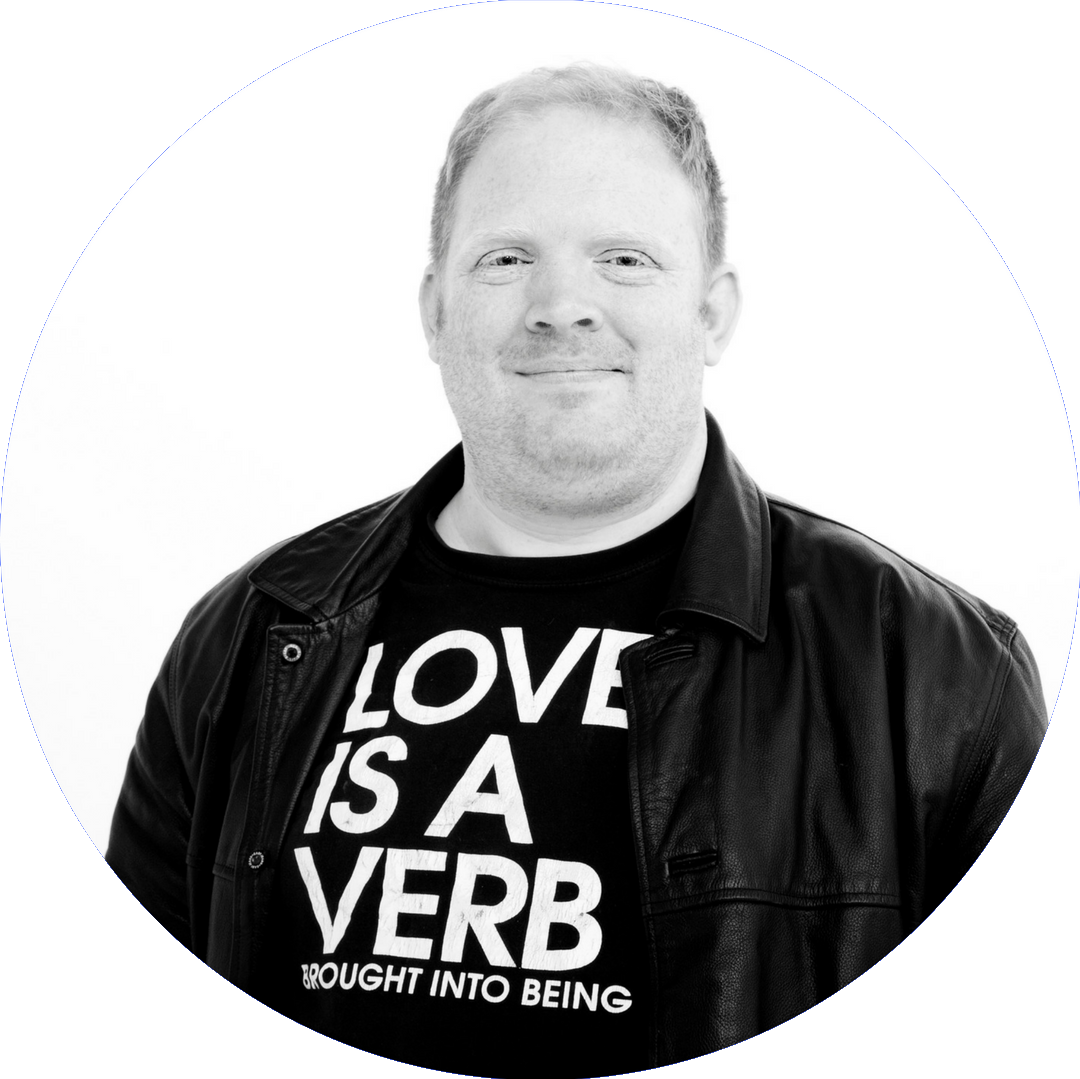

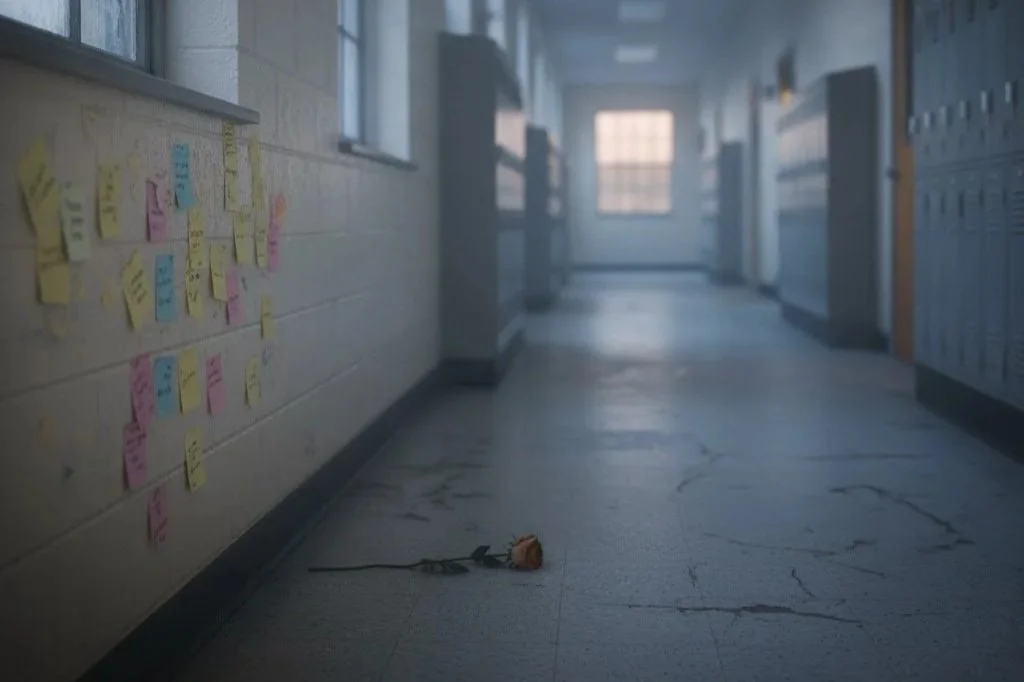

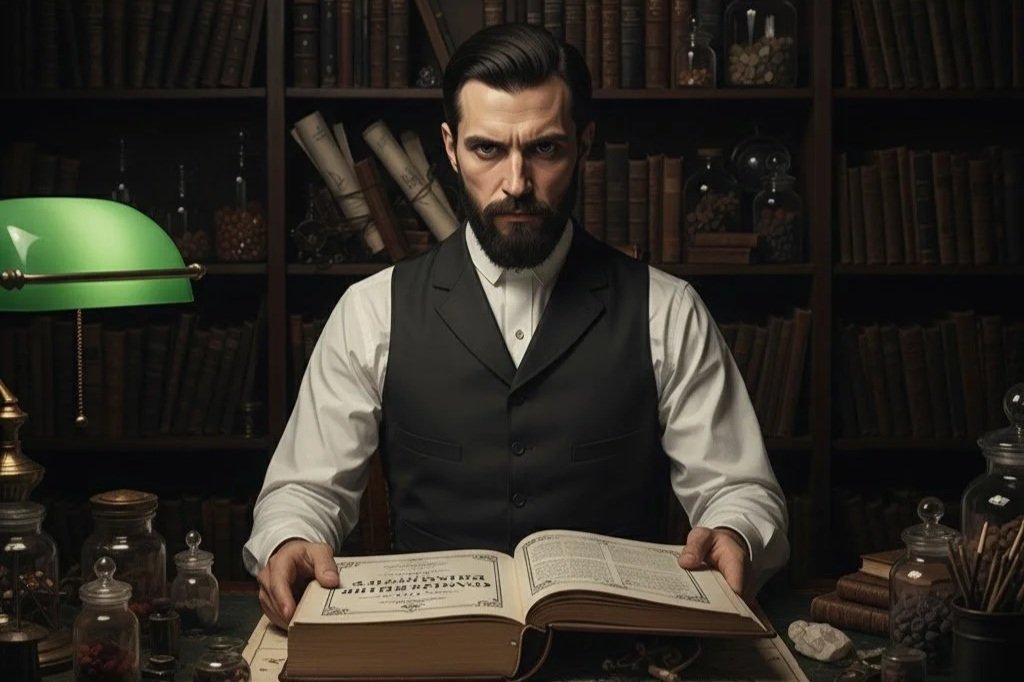

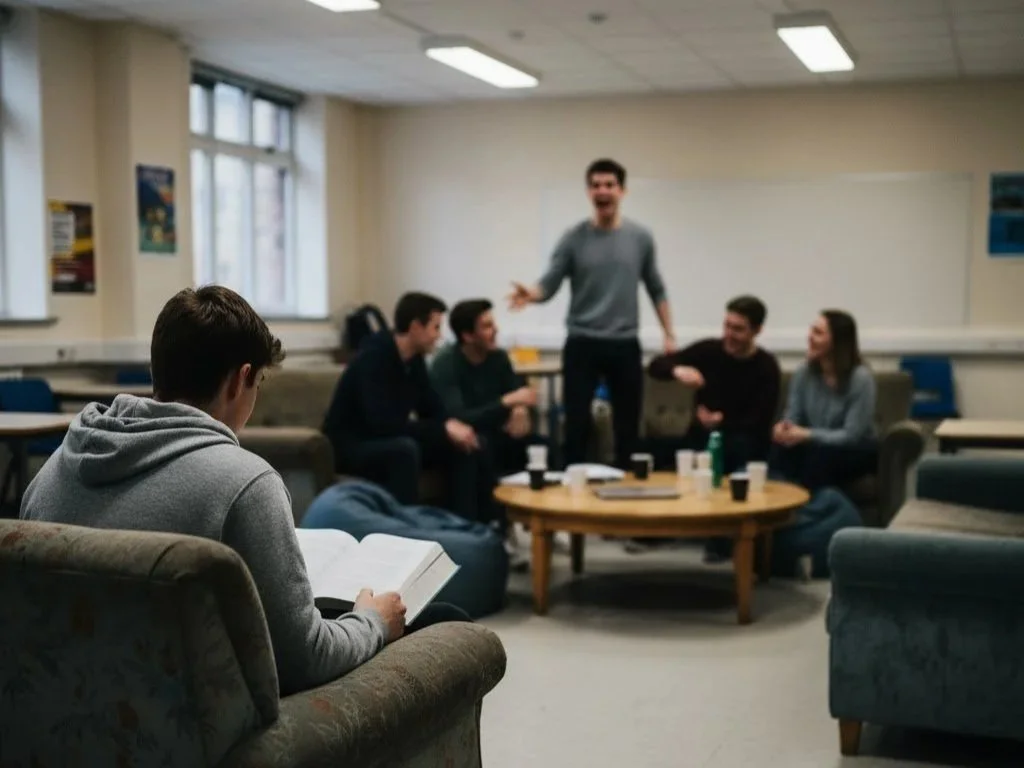


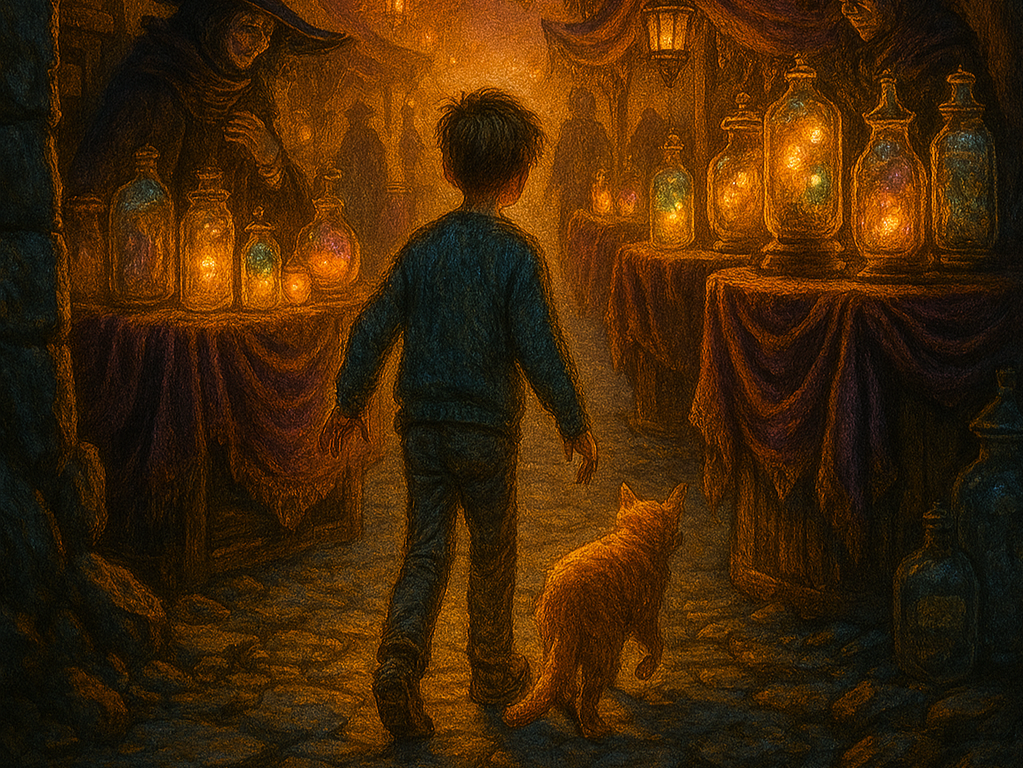
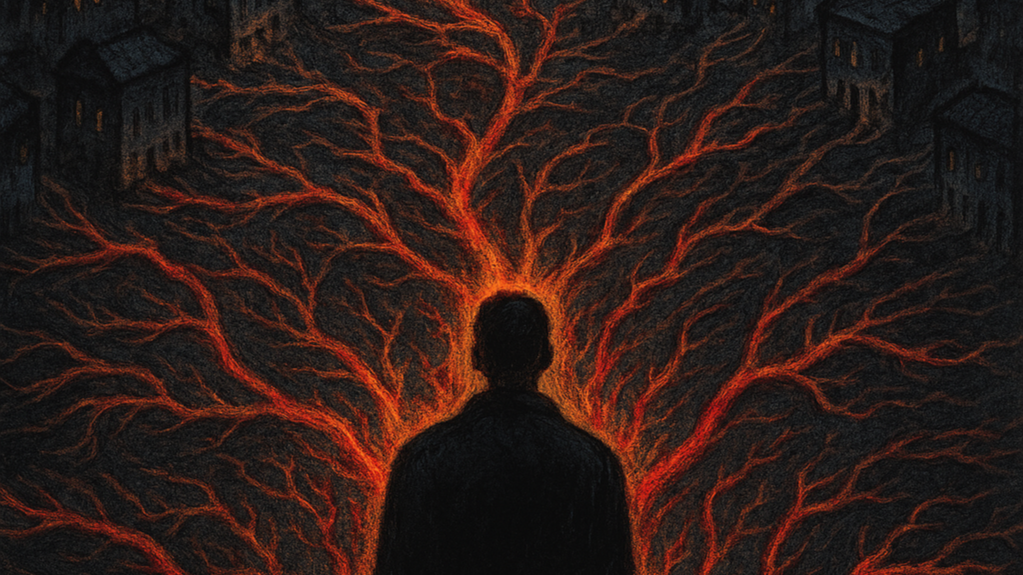





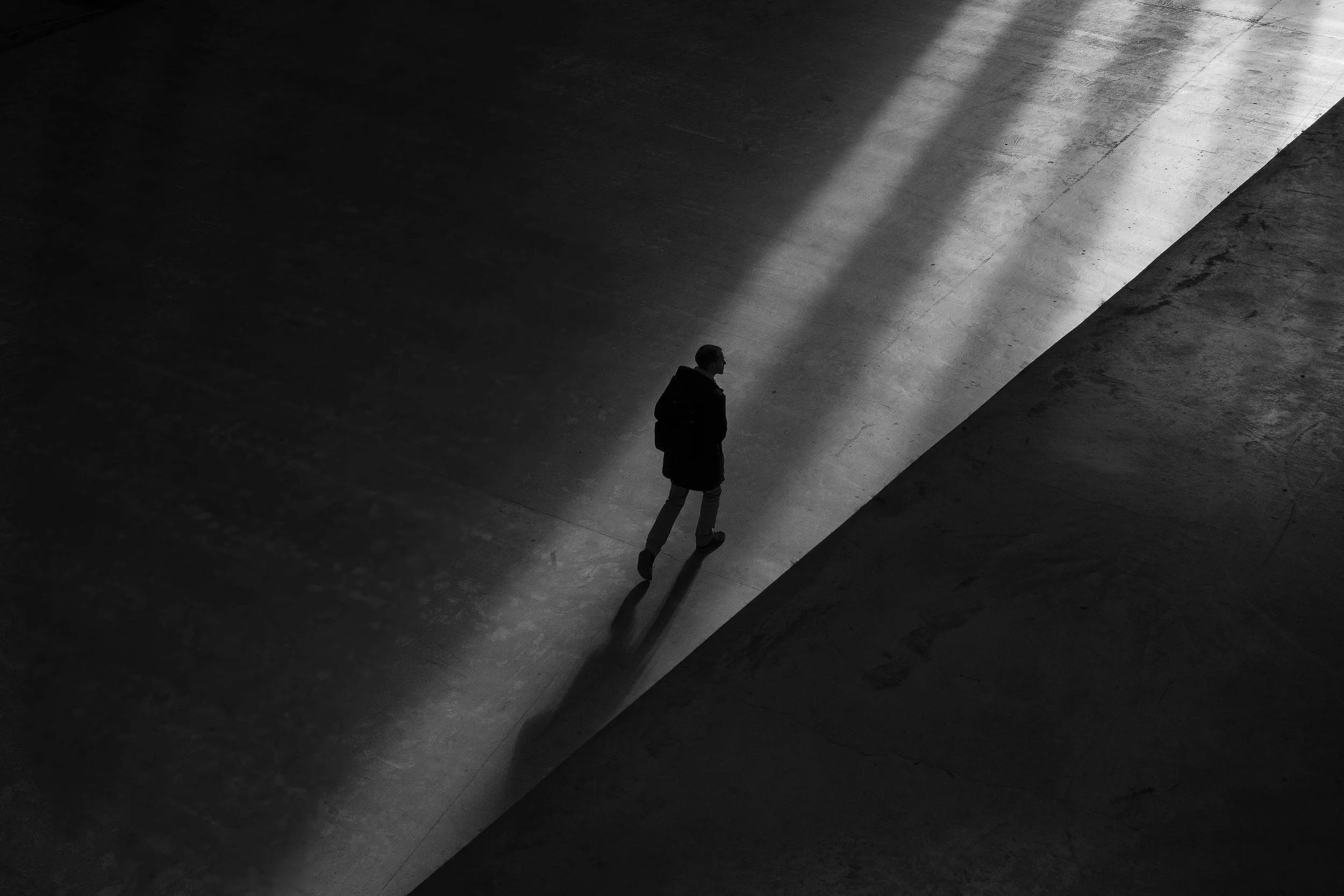











Some people move through the world making noise. Thirteen-year-old Leo has learnt to be still. But when an old illustrated book vanishes from the bookshelf, Leo discovers something extraordinary living in the walls of the Victorian house: the Snibbit, a small magical creature that collects beautiful things and understands that silence can be full of meaning. Through carefully preserved fragments from the past, the Snibbit teaches Leo how to navigate a world that isn't built for quiet people.